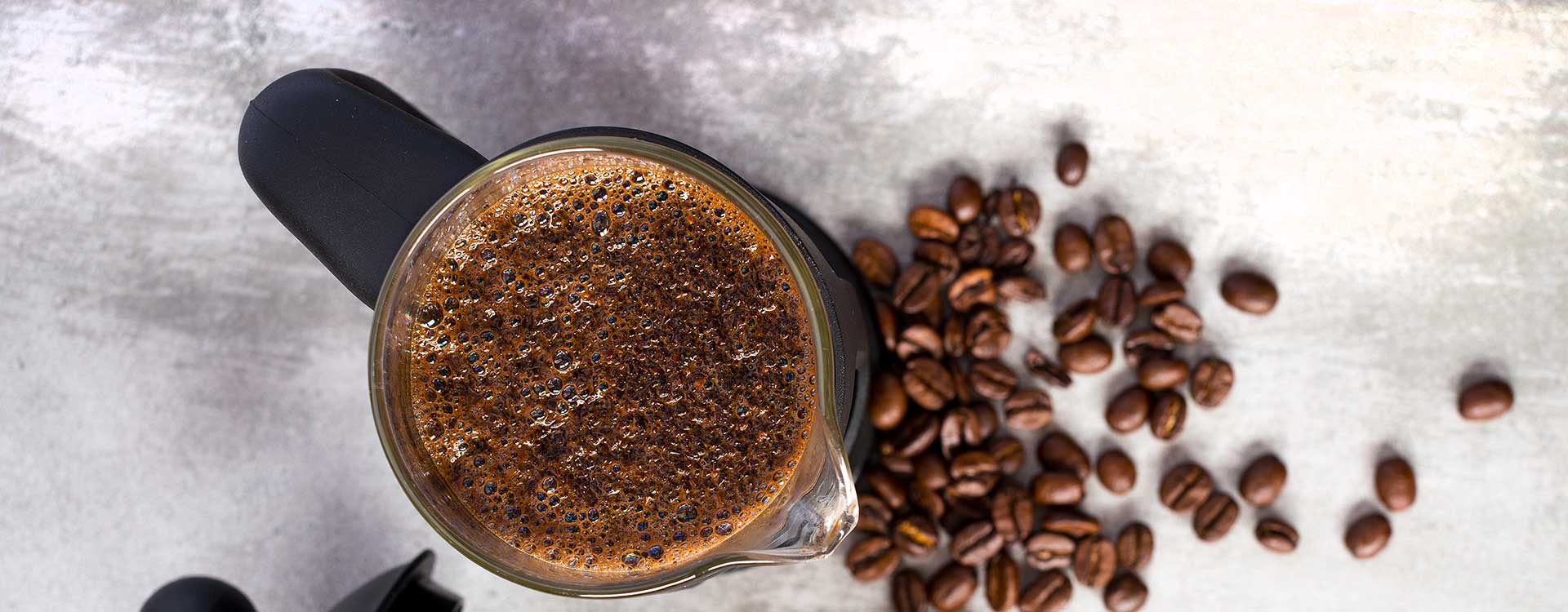negative impact of social media during covid 19
However, research on aspects such as visitor perception has not received sufficient attention, This study contributes to It furthers the University's objective of excellence in research, scholarship, and education by publishing worldwide, This PDF is available to Subscribers Only. The pandemic infodemic: how social media helps Jones, E.A.K. For more information, please refer to Furthermore, satisfaction with digital treatment was mediocre, and was not regarded as a good substitute for in-person care, neither was it seen as a fit substitute. COVID-19 Tedros Adhanom Ghebreyesus, the director-general of the World Health Organization (WHO), noted that urgent measures must now be taken to address the coronavirus infodemic.. Psychology Today 2023 Sussex Publishers, LLC. In this study, using a small stories research narrative paradigm to analyze documented Despite this, citizens have used social media to express veiled criticism of government mismanagement and lack of government accountability. In order to be human-readable, please install an RSS reader. @article{article, Mostly worse, occasionally better: Impact of COVID-19 pandemic on the mental health of Canadian children and adolescents. WebStudy revealed that social media use has a significant impact on the development of panic among people regarding the COVID-19 epidemic, with possibly detrimental psychological Second, and the most important in validating those negative feelings is the cognitive interpretation of this arousal. Gilsbach, S.; Herpertz-Dahlmann, B. An online petition compiled by 8,000 people north of Toronto demanded that the school board ban students whose family members had recently travelled to China from attending school. Our current mood that we are experiencing impacts the judgement of the people that we meet. The authors review research conducted over the past two decades on the role of exposure to media in acute and long-term health outcomes, and provide recommendations to guide individuals, health-care providers, and researchers during the COVID-19 pandemic. To whom correspondence should be addressed. Social media during a pandemic and quarantine | Khoros project was a collaboration between the World Health Organization (WHO), Wunderman Thompson, the University of Melbourne and Pollfish. The results show that most participants experienced a negative impact on visitations. ; Fernndez-Real, J.M. WebHighlights This study investigates the impact of eWOM on travel decision-making during the COVID-19 outbreak. During times of emergency and disaster, urgent questions arise and require immediate response. Please note that many of the page functionalities won't work as expected without javascript enabled. In China, a rumour spread that bioweapons research in a Wuhan laboratory resulted in the genetic engineering of COVID-19 that was then released. By clicking accept or continuing to use the site, you agree to the terms outlined in our. Professor, Sociology, York University, Canada, York Research Chair in Global Digital Citizenship, Associate Professor, Department of Sociology, York University, Canada. Even though sharing your emotions is a positive thing , the constant negative environment can lead to a worsen state of mind. (3) Results: patients reported a significant negative impact of confinement on ED symptoms, depression, anxiety, and emotional regulation. Stress reactions due to pandemic-related information overload. There was no relevant increase in conflicts other than eating-related conflicts. The impact of social media misinformation may be even more pronounced because of confirmation bias, the tendency to accept statements that reinforce our established views and to downplay statements that counter these views. For example, several hours of daily television exposure in the days after 9/11 was associated with increased posttraumatic stress and new-onset physical health problems 2 to 3 years later. Providers promote calm, rational action, and encourage tempered media consumption that may undermine public health efforts to combat the COVID-2019 outbreak most effectively. ; Camarneiro, R.; Villaseor, .; Yez, S.; Muoz, R.; Martnez-Nez, B.; Migulez-Fernndez, C.; Muoz, M.; Faya, M. Children and adolescents with eating disorders during COVID-19 confinement: Difficulties and future challenges. Can Humans Detect Text by AI Chatbot GPT? year = {2023}, There are specific issues relevant to the pandemic and social media that can have a negative impact on our mental health. WebThe COVID-19 pandemic had a detrimental effect on the mental health of children and adolescents (see for example [1,2]).In addition to an increase in more general mental Overall, we found a detrimental impact of COVID-19 pandemic-associated changes on the psychopathology of adolescent patients with AN. Impact of COVID-19 pandemic on mental health in the general population: A systematic review. In a survey with 159 former patients with AN (mean age 22.4 years old, age range 1462), approximately 70% reported that eating, shape, and weight concerns, a drive for physical activity as well as loneliness, sadness, and inner restlessness all increased during the pandemic. Some key insights uncovered include: When asked what COVID-19 information (if any) they would likely post on social media, 43.9% of respondents, both male and female, reported they would likely share scientific content on their social media. ; Patten, S.B. (1) Background: the COVID-19 pandemic and subsequent confinements have led to a dramatic increase in anorexia nervosa (AN) in adolescent patients, whereas the effect on symptom severity and the influencing factors are not yet clear, especially not from the adolescents perspective. International journal of environmental research and public health (1661-7827) 20 The above observations underscore an urgent need for Indias Government to effectively control the social media seeking a careful balance of its use and misuse. The negative climate on social media leads ; et al. WebInstead of self-glorifying social media brand posts, brands will be forced to embrace the communal logic of social media during the COVID-19 crisis. Pretraite po imenu i prezimenu autora, mentora, urednika, prevoditelja, CROSBI ID: 1257891 Social Media Nostalgia, Social Media, and Subjective Wellbeing: The Dualistic Write an article and join a growing community of more than 160,500 academics and researchers from 4,573 institutions. The 2 Most Psychologically Incisive Films of 2022, The Surprising Role of Empathy in Traumatic Bonding. In a peer reviewed article , a cross sectional study was done to calcule the perception of threat from covid 19 and found that there was a direct positive effect from the perceived threat of covid 19 to depression, anxiety, and anger. York University provides funding as a member of The Conversation CA-FR. ; Chen, C.Y. Background: Social media platforms have numerous potential benefits and drawbacks on public health, which have been described in the literature. Pandemics will require co-ordinated global response strategies. Social media also facilitates a form of prejudiced collective organizing that, similar to crowdsourcing, rapidly enlists a large number of people, yet does so on the basis of questionable claims and beliefs. What is the Role of Social Media During the COVID-19 Crisis? The results show that most participants experienced a negative impact on visitations. Otto, A.K. Nutrients. Impact Draenovi, M., Vukui Rukavina, T. & Machala Poplaen, L. (2023) Impact of Social Media Use on Mental Health within DOI = {10.3390/ijerph20043392}, 4 A study evaluating the number of times people watch COVID-19 medical videos on YouTube found that independent users were more likely to post misleading videos than useful ones (60.0% vs The authors declare no conflict of interest. Draenovi, Marija ; Vukui Rukavina, Tea ; Machala Poplaen, Lovela, Izvornik 102, Rajlaxmi Residency, A wing, Sadashiv Dangat Nagar, Ambegaon Bk, Pune 411046, India. Overexposure to inaccurate and false information can be confusing and overwhelming, ultimately leading to increased anxiety, mistrust, stress, and depression. Fernndez-Aranda, F.; Mungua, L.; Mestre-Bach, G.; Steward, T.; Etxandi, M.; Baenas, I.; Granero, R.; Snchez, I.; Ortega, E.; Andreu, A.; et al. CROSBI koristi kolaie (cookies) kako bi poboljao funkcionalnost stranice. impact The role of social media in COVID-19 | Exploring the effects of those of the individual author(s) and contributor(s) and not of MDPI and/or the editor(s). From conspiracy theories to false information about cures, there is an abundance of misinformation spread on social media platforms about the novel coronavirus. issn = {1661-7827}, volume = {20}, The COVID-19 pandemic has drastically changed our lives. It has been observed that social media platforms have had both a positive and negative effect on how India has dealt with the COVID 19 pandemic. Adolescent and Student Populations during COVID-19 A detailed report and analysis Limit screen time during coronavirus outbreak Western digital corporations and social media platforms (Facebook, Twitter, YouTube, Instagram, Snapchat and Reddit) and their Chinese equivalents (WeChat, Weibo, Tencent and Toutiao) are at the heart of this crisis. Xenophobic reactions that emerged during the 2003 SARS outbreaks in Toronto, amongst other cities, are being repeated during the current COVID-19 pandemic. journal = {International journal of environmental research and public health}, While it is often suggested that young adults are too relaxed' and do not care about the crisis, this notion is not reflected in the data, with over 90% of respondents were very concerned or somewhat concerned about the risk of infection. Social cognition is the study of how people remember information and then interpret that information about themselves and others. By increased screen time during the pandemic, social media (SM) could have significantly impacted adolescents' and students' mental health (MH). The search yielded 1136 records, with 13 articles selected for this review. WebVicky Goodyear discusses young people's use of social media during the COVID-19 pandemic and beyond, and takes a look at how they can be better supported to engage with social media safely, responsibly, and effectively. A two-stage methodology is developed using structural equation The patients were more preoccupied with cooking recipes and had more eating-related conflicts with their parents. most exciting work published in the various research areas of the journal. COVID-19 pandemic ; adolescent ; internet ; mental health ; social media ; student. Policies such as complete banning of social media or suppressing messages related to COVID-19 can have serious implications as it may suppress life-saving information related to COVID-19 or may cause distrust in the motives of governing power.4 Researchers who successfully mitigated the negative impact of social media and effectively used social media for Ebola control, Ebola vaccine acceptance and other vaccines acceptance suggested measures such as, creating real-time information sharing system, creating a multidisciplinary team of experts to draw data and analyse from range of social media platforms across the global diaspora to understand peoples perceptions and attitudes as well as to detect early signals of misinformation to address them before they snowball. Governments, public health authorities and digital corporations need to not only promote digital literacy, but combat ways in which the impact of social media may be spawning an irreversible post-truth age, even after the COVID-19 pandemic dissipates. Pandemic: Review. Most of the time the cognitive interpretation is done based on the reactions to the arousal made by other people. 7 Negative Effects of Social Media on People and Users - MUO WebThe COVID-19 pandemic has drastically changed our lives. Social media Abhay B Kadam, MSc, Sachin R Atre, PhD, Negative impact of social media panic during the COVID-19 outbreak in India, Journal of Travel Medicine, Volume 27, Issue 3, April 2020, taaa057, https://doi.org/10.1093/jtm/taaa057, Dear Editor, we read with interest the article titled The pandemic of social media panic travels faster than the COVID-19 outbreak.1 We agree with the authors and here we aim to provide an account of social media and societal response to COVID-19 that affected its control measures in Indiaa country which has over 350 million social media users and a large proportion of which are unaware about fact checking sources.2. ; Soumbasis, A.; Flanagan, J.; Paslakis, G.; Vyver, E.; Marcoux, G.; et al. Social media may lead to (mis)information overload [ 8, 9 ], which in turn may cause mental health problems. However, the same tools also enable and amplify the current infodemic that continues to undermine the global response and jeopardizes measures to control the pandemic. Testing daily states of nostalgia, loneliness, and affect across five daily diary studies found that nostalgia and loneliness were negatively related to positive affect and positively related to negative affect, supporting a theoretical account that proposes that the effect of nostalgia on well-being depends on the natural context in which nostalgia is elicited. One popular conspiracy theory held that the virus was developed as a means to wage a biological war against China. Individuals from North-Eastern part of India who may resemble Chinese natives experienced racism. chapternumber = {3392} However, further research on its effectiveness is still needed. WebThis leads us to question why as humans we choose to believe the news on social media or why social media news and traditional news impact us differently. To watch the video,click here. Gao, Y.; Bagheri, N.; Furuya-Kanamori, L. Has the COVID-19 pandemic lockdown worsened eating disorders symptoms among patients with eating disorders? This study is the only study that examined changes in AN symptomatology in adolescent patients during the COVID-19 pandemic using a validated questionnaire, asking for direct pre-/post-comparisons and focusing on the adolescents perspective. Impact Too much coronavirus media exposure may Educational Psychology, School Psychology, and Training, Industrial/Organizational Psychology and Management. author = {Dra\v{z}enovi\'{c}, Marija and Vuku\v{s}i\'{c} Rukavina, Tea and Machala Popla\v{s}en, Lovela}, The significant, negative impact of the pandemic on feelings of anxiousness and depression reported by our patients mirrors well the emotional burden caused by confinement, not only for patients with AN [, The digital media consumption of patients with AN, especially associated with body weight and shape, increased distinctly between the pre-pandemic and peri-pandemic times. The frequency of disease outbreaks like the one were currently witnessing will increase, given the ways in which connections between human beings and nature continue to intensify. Conclusion Our findings Adolescent and Student Populations during COVID-19 During the COVID-19 pandemic, official social media became a critical channel for the public to obtain pandemic information. China, famously unprepared to take the stage during the 2009 H1N1 outbreak, learned its lesson, being upfront and transparent about the coronavirus situation on social media. Negative impact By contrast, as the outbreak intensifies, social media has taken on new and increased importance with the large-scale implementation of social distancing, quarantine measures and lockdowns of complete cities. With data collected from late October 2020 to early January 2021, the outcomes provide key insights on where Gen News of his death dominated Chinese social media, with a flurry of messages expressing grief as well as anger directed at the government. The COVID-19 pandemic has drastically changed our lives. Pandemic: Review, Autori Threat of COVID-19 and emotional state during quarantine: Positive and negative affect as mediators in a cross-sectional study of the Spanish population. Previous studies performed by IAAP show that in a case study with 512 college students , results from a regression analysis show that a higher level of social media use is associated with a worsen mental health.


